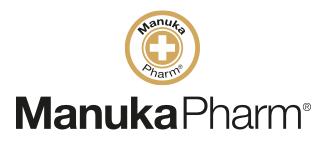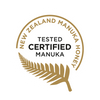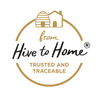When browsing the huge number of CBD products available, you’re likely to notice there are some terms that crop up on labels time and again, which may not make much sense to a newcomer – but, with a little know-how, will give you a much clearer idea about what you’re buying.
One of the most important decisions to make is whether you want to buy a full spectrum, broad spectrum or isolate product. But, what’s the difference? And why does it matter?
If you’ve already read my ‘CBD for Beginners’ article, you’ll know the basics by now. But just in case you missed that, here’s a quick re-cap:
Full Spectrum
Full spectrum CBD products contain a range of cannabinoids (usually 5 or 6), including a minute, legal amount of THC – the compound in cannabis that gets you high. Although it’s not enough to make you feel “high” at all. You may also find a range of terpenes and flavonoids in true full spectrum oils, but these are hard to come by and most oils labelled full spectrum are not as ‘full’ as they are made out to be.
Broad Spectrum
Broad spectrum oil is supposed to be the same as full spectrum, but without the THC. However, on closer inspection of lab reports many oils labelled broad spectrum are mostly CBD with trace amounts of a few other cannabinoids. Genuinely broad spectrum products will contain a range of cannabinoids and zero THC.
Isolate
CBD isolate products contain the CBD molecule on its own, usually suspended in a carrier oil (most commonly MCT or hemp seed oil). Although this means you’re not taking advantage of ‘the entourage effect’ (when molecules in the cannabis plant work in synergy with each other and the body), many cannabinoid chemists believe this is the safest and most reliable choice of CBD oil, as almost all of the randomised control trials and double blind placebo trials (considered to be the gold standard of testing in the UK) exploring the therapeutic effects of cannabinoids are looking at CBD or THC isolates. So, many cannabinoid chemists and researchers feel we can be most confident about the safety and efficacy of these cannabinoids (particularly CBD) than any others.
How do CBD isolate products work?
Because of the fact that all 147 cannabinoids appear to have different actions and properties, a full spectrum oil works quite differently to a CBD isolate oil. But, although a full spectrum product certainly offers more in terms of mechanisms, that doesn’t necessarily mean it’s best suited to your needs. It’s worth noting that the scientific community across the world are still working hard to fully understand the complexities of cannabinoids – and how they work together.
The CBD molecule, on the other hand, is pretty clear cut. We know how it works and (although studies are still underway, revealing new potential all the time) we know a lot about what it can do for the user.
Despite being a single compound, CBD actually has multiple mechanisms via a variety of molecular pathways. Some experts believe these pathways can even change depending on the need of the body. This, and the fact that CBD is biphasic (has different effects at different doses) means just this molecule all by itself can provide a wide ranges of wellbeing benefits.
Here are a few of the ways CBD acts in the body
The Endocannabinoid System
Cannabidiol (CBD) supports the endocannabinoid system[1] a widespread physiological system made up of receptors that are present in virtually every part of the body. Its job is to keeps every bodily function in balance, and it does this when activated by neurotransmitters called ‘endocannabinoids’ (literally, cannabinoids within). The system is named after cannabinoids in cannabis, as many of their actions in the body are so similar. When CBD is taken, it inhibits the enzyme that breaks down our endocannabinoids, in turn allowing for higher levels of these essential neurotransmitters and a wider spread action. In an ideal world, our endocannabinoid levels would be healthy, so we wouldn’t need to support them. But contemporary lifestyle factors such as chronic stress, poor diet and lack of quality sleep are now believed to lead to an endocannabinoid deficiency[2] (when endocannabinoids are not produced and released as needed). In this scenario, a little ECS support can go a very long way!
Serotonin Receptors
The CBD molecule also directly activates serotonin receptors, which then releases higher levels of serotonin into the body. Although serotonin is most famous for its uplifting effect on mood, its actions reach far beyond, playing a vital role in digestion, sexual function, pain transmission, bone density and much, much more! SSRIs are commonly prescribed for conditions such as anxiety and depression, and these work in much the same way[4] – increasing serotonin levels, but by blocking the ‘mop up’ of existing serotonin, rather than activating the receptors to produce more.
Vanilloid Receptors
CBD also directly activates vanilloid (or capsaicin) receptors. These receptors are heavily involved in pain transmission, helping to mediate pain perception, temperature and metabolism.
These are just a few of many other actions of CBD, which include activation of dopamine receptors[5] and a newly discovered interaction with a G-couple protein receptor (GPR55) which is being investigated for the important role it could play in a range of conditions[6]. So, although a CBD isolate might ‘just’ contain CBD – there’s still an awful lot going on in your body when you take it!
Try the Manuka Pharm CBD products for a range of problem solving products.
You can read more of Ruby's blogs here
Or find out more about her work at www.rubydeevoy.com



















